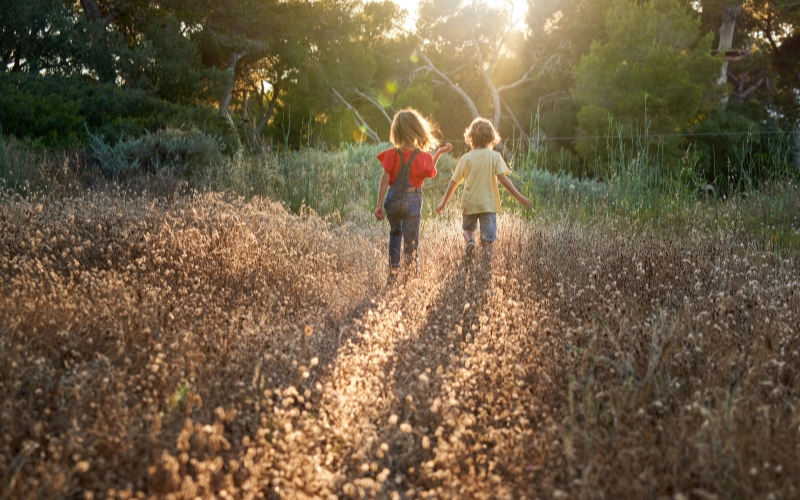According to a CDC study, the rate of depressed teenagers has almost doubled over the past decade. The number of American high-school students reporting “feelings of sadness and hopelessness” rose from 26% to 44%.
Social media, academic pressure, challenges with self-esteem, bullying and substance use have been linked with the causes. Today’s adolescence is continuously exposed to situations that increase stress levels.
A growing body of evidence shows that one of the best ways to de-stress is to spend time in nature. Physicians are even prescribing nature walks to patients suffering from depression and anxiety.
Studies have also found that children with regular access to green space have a greater sense of well-being. Researchers found that spending at least one hour a day engaged in vigorous physical activity – running, climbing, and jumping – is as beneficial to a child’s psychological state as it is for their physical needs.
Encouraging your children to play in the local park or nearby woods is central to a child’s development – and could help to ward off depression, anxiety and other mental health issues.
How do nature walks help?

Walking in nature encourages movement, exploration, and curiosity, three essential ingredients that help to energize your child, develop their knowledge of the world and build self-confidence.
On the flip side, sitting in from a computer playing video games or mindlessly scrolling through social media feeds contains static energy which later manifests as moodiness, restlessness, anxiety and depression.
Nature walks can also be used to encourage creativity and imagination. Young children have vivid imaginations and an inextinguishable resource of energy when they are engaged.
However, studies show that our creativity wanes once a child starts school. 98% of children age 5 have genius levels of creativity, but only 26% retain the gift of innovation as adults.
One solution to free a child from apathy is to encourage them to play games – or even better to create their own games whilst they’re playing in nature. And there are plenty of ways to keep children engaged whilst they’re exploring the natural world.
Nature walks encourage children and young adults to pull them out of the ordinary way of life and discover the world around them in ways that can fascinate them and stimulate their imagination.
Benefits for physical and emotional health

Spending time in nature helps us to understand the importance of the natural world and often encourages us to treat our environment with respect. Teaching children to care for animals, plants, flowers and other living organisms helps them to develop compassion from an early age.
Individuals with high levels of compassion generally take better care of their health and have fulfilling, meaningful relationships as adults.
It can also instill the need for self-compassion in the mind of young adults which ultimately enables them to overcome setbacks because they are attuned to their thoughts and emotions.
Experts also believe that being outdoors can strengthen the immune system – particularly as nature helps us destress.
And stress is thought to be responsible for over 90% of doctors’ visits. In other words, most illnesses are preventable if we took more time to destress and care for our emotional well-being.



